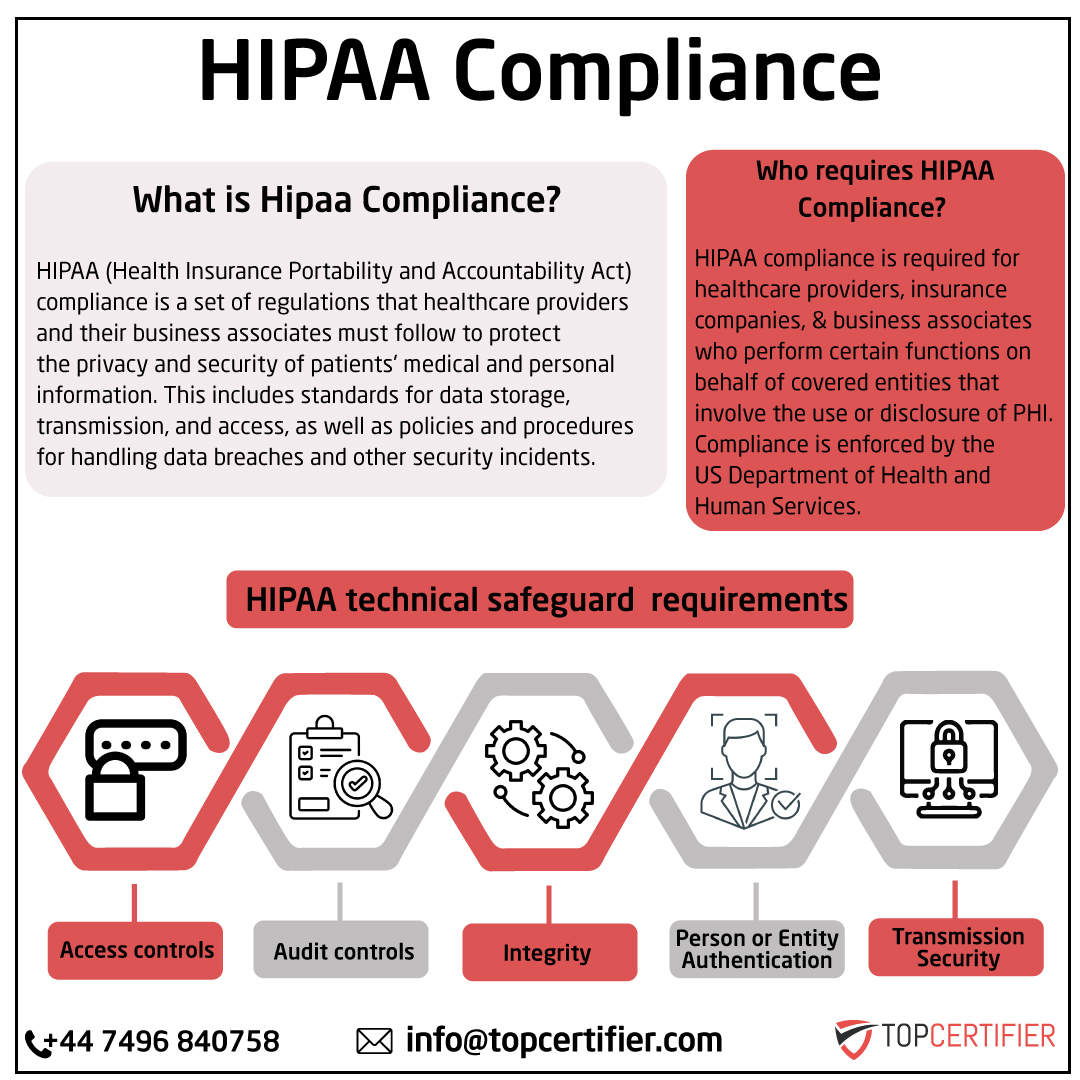Trust Us To Lead The Way In Certification And Compliance
Knowledge And Expertise
Thorough Understanding Of The Framework, Its Requirements, And Best Practices For Implementation
Proven Track Record
Successful Track Record Of Helping Clients Achieve Compliance, With Positive Client Testimonials And Case Studies.
Strong Project Management Skills
Ensure The Compliance Engagement Runs Smoothly And Is Completed On Time And Within Budget.
Experienced Team
Possession Of Experienced Professionals, Including Auditors, Consultants, And Technical Experts
Exceptional Customer Service
Committed To Excellent Customer Service With Clear Communication, Responsive Support, And A Focus On Satisfaction.
Competitive Pricing
We Prioritize Delivering High-Quality Services With Competitive Pricing That Provides Exceptional Value To Our Clients
FAQs
FREQUENTLY ASKED
HIPAA stands for Health Insurance Portability and Accountability Act. It is a US federal law that was enacted in 1996 to protect the privacy and security of sensitive health information.
HIPAA applies to covered entities, which include healthcare providers, health plans, and healthcare clearinghouses, as well as their business associates, which include any vendor or subcontractor that handles protected health information (PHI) on behalf of a covered entity.
PHI stands for protected health information, which is any individually identifiable health information that is transmitted or maintained in any form or medium, including electronic, paper, or oral. Examples of PHI include medical diagnoses, treatment plans, prescription information, and insurance information.
The HIPAA Privacy Rule sets national standards for the protection of PHI, including who has access to it, how it can be used and disclosed, and patients' rights to access and control their own PHI. The HIPAA Security Rule requires covered entities to implement administrative, physical, and technical safeguards to protect PHI in electronic form.
Noncompliance with HIPAA can result in civil and criminal penalties, including fines and imprisonment. The Office for Civil Rights (OCR) within the US Department of Health and Human Services (HHS) is responsible for enforcing HIPAA.
A HIPAA breach is an impermissible use or disclosure of PHI that compromises the security or privacy of the information. Breaches must be reported to the affected individuals, the OCR, and in some cases, the media.
Covered entities and business associates can ensure HIPAA compliance by implementing and following policies and procedures that address the Privacy Rule and Security Rule requirements, providing regular training to their workforce, and conducting regular risk assessments.
HIPAA applies only to covered entities and business associates that operate within the United States, but non-US entities that provide healthcare services to US residents must also comply with HIPAA if they handle PHI on behalf of a covered entity.
